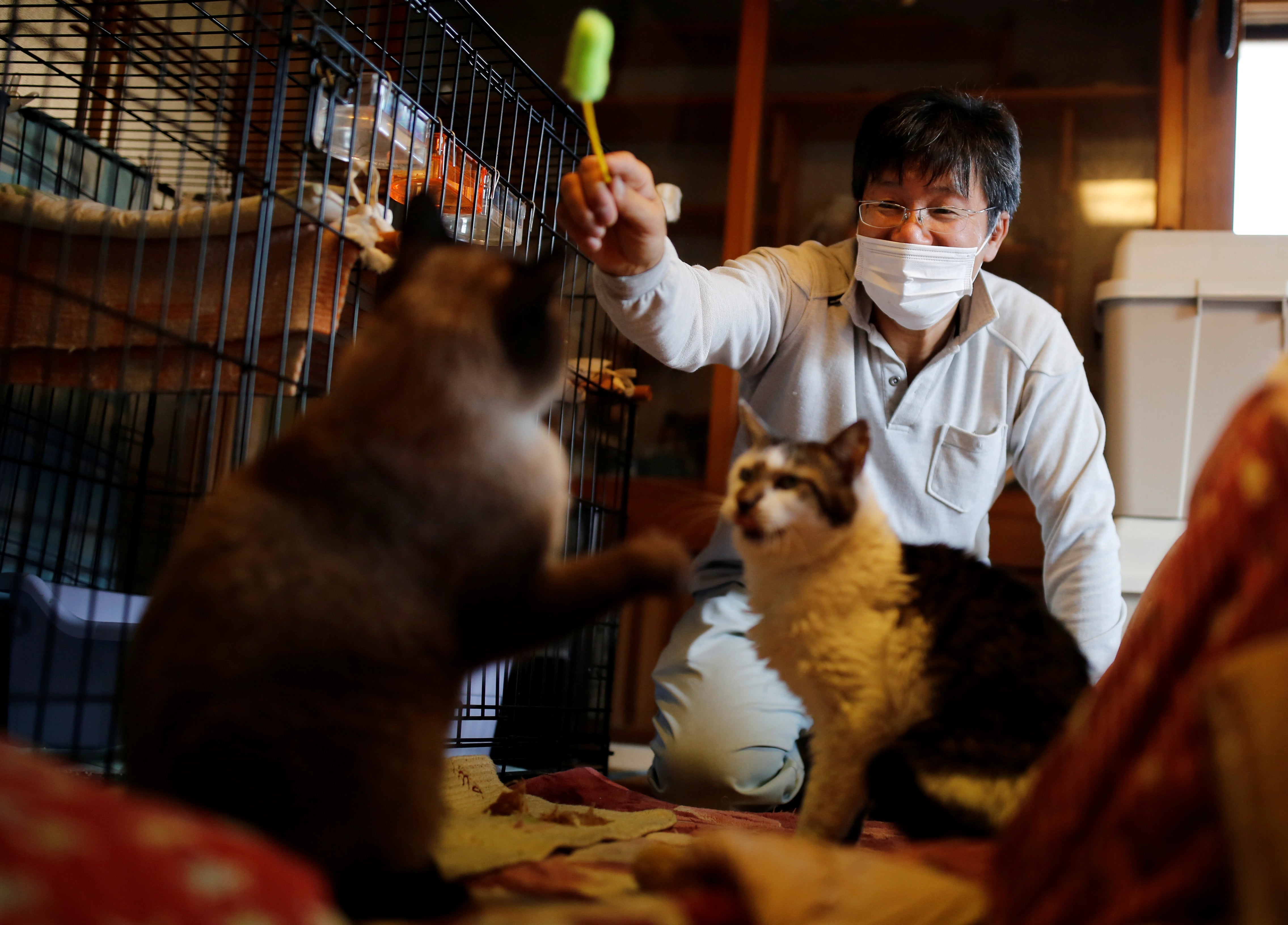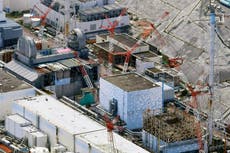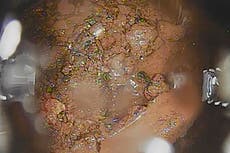The man who saved Fukushima’s forgotten cats
‘I want to make sure I am here to take care of the last one,’ says Sakai Kato

A man in Japan’s Fukushima has been saving all kinds of cats for a decade in the abandoned area where thousands of people fled during the nuclear plant disaster, and he still continues to take care of them.
Sakae Kato, who has made his life’s mission to take care of the abandoned pets, is looking after 41 feral cats in his home and has buried 23 cats in his garden and one other empty property.
"I want to make sure I am here to take care of the last one," he told Reuters from his home in the contaminated quarantine zone. "After that, I want to die, whether that be a day or an hour later."
Living his simple countryside life in the mountainous area, Mr Kato uses the nearby mountain spring for water and has to drive to public toilets. He leaves food for his feral cats in a storage shed he heats with a paraffin stove.
Mr Kato says he decided to rescue and care for the abandoned pets in the area when he found dead pets in the abandoned houses he helped demolish, after over 160,000 people evacuated leaving animals behind.
His family, friends and neighbours, all fled the area following the radiation cloud emitted from the nuclear power plant, but Mr Kato vowed to stay in a near-empty township and began taking care of stray pets.
He says the cats also gave him a reason to stay on the land he loves and has been owned by generations of his family.
"I don’t want to leave, I like living in these mountains," he said standing in front of his shabby two-storey wooden house, which he is allowed to visit but, technically, not allowed to sleep in.
Even in his difficult state of living, Mr Kato says he spends around $7000 a month on the food of the animals, a major part of which goes to wild boards that gather around his house every evening. Last month, he was arrested for allegedly freeing a wild boar caught by the Japan government in a trap.
The Fukushima disaster was considered the worst nuclear accident since the Chernobyl disaster. The accident, which was triggered by an earthquake and tsunami in 2011, forced the government to evacuate 20 kilometres of the area due to contamination in water and air.
The process of decontamination in the affected area, including near the house of Mr Kato is ongoing, however, residents are still not allowed to return.
Join our commenting forum
Join thought-provoking conversations, follow other Independent readers and see their replies
Comments


Bookmark popover
Removed from bookmarks